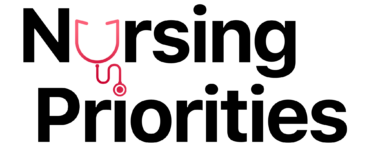If you are reading this blog, you are likely thinking about going into nursing. You may ask yourself, “Why nursing?” If you aren’t asking yourself that question, your family, friends, and coworkers will be. What thoughts have you had about considering nursing? In this blog post, I will share some reasons others have chosen nursing. These thoughts may provide you some affirmations or give you a reason to think again about picking this “most trusted” profession.
Nursing is a profession.
Yes, nursing is a profession. I will start there. A profession’s definition is “a calling requiring specialized knowledge and often requiring long, intensive academic preparation” (Merriam-Webster, n.d., definition 4). Yes, nursing is a job or employment but, as the definition indicates, it is much more. No one can walk into a healthcare setting and “be a nurse.” Like medicine, law, engineering, or teaching, a nurse must receive education to obtain the profession’s knowledge, skills, and attitudes of the profession (sometimes called the KSA’s).

The First Step: Figuring Out the Why
So, where does one start when deciding to be a nurse? A person needs to have strong reasons for choosing the profession. One of the most common reasons is to help others. Nursing is an altruistic profession. Nurses act for the benefit of patients or clients, a selfless act to improve the situation of the other. (Patient and client are often used interchangeably in nursing. I will use patient for most of my blog posts.) Many nurses say an experience with a nurse who helped them or their loved ones triggered their desire to go into nursing. Nursing is a helping profession. It requires the ability to communicate clearly with others and think about how to best serve the patient. Another term related to nurses’ actions is advocacy. The nurse assists the patient and stands up for the patient’s best interests or desires. Sometimes the nurse sets aside his or her own beliefs to do what the patient requests.
Another reason people commonly choose to go into nursing is for employment, of course. Nurses work in a variety of settings and many nurses are needed to meet the needs of the public. Nurses in the hospital (the acute care setting) or long-term care setting (nursing home) are needed round-the-clock. Nurses also work in outpatient settings including clinics, public health departments, homes, schools, and other settings. With the high demand, many nurses are needed. Currently, there is a shortage of nurses in our country with many job opportunities. And with many openings, employers try to be flexible with hours (8-hour versus 12-hour workdays, day/evening/night work, part or full-time, weekends only, etc.).
With a nursing education and license, there shouldn’t be any reason for not finding a job. Nurses often can boast of job security.
It’s Not Just a Job
I will editorialize a bit here to remind those thinking of nursing as a path to a job of the drawbacks. Aspects of nursing don’t appeal to all. Some say, “Oh, I hate blood.” Not all nurses work in any way with the blood but all do see people with health conditions. All must learn how to manage not only health but illness. And, with illness comes pain, anxiety, and debility. Although most areas of nursing have lots of happiness there is also sadness and even death. One must be realistic when choosing nursing. There will be positive and rewarding experiences. But, some challenging or even traumatic experience can occur. Going into nursing for only job security may not work out well if someone is unable to handle the challenges of nursing.

Do You Like Science?
Some may say they are interested in science so chose nursing. Nursing certainly fits into the STEM (science, technology, engineering, and mathematics) professions. Nursing does focus on the soft skills, such as communication, teamwork, and time management. But, there will be quite a bit of STEM content in nursing education and in the work setting. Through nursing education, one learns physical and chemical sciences (biology, chemistry). Nurses learn to work with many different technologies and how to calculate life-saving medication dosages. Few nurses will ever say nursing education was easy. However, if science excites you, nursing might, too!
Those that like a changing environment may also choose nursing. Healthcare is always changing and no person is the same. A nurse’s workday frequently changes based on the needs of the patients. Who had heard of or could have expected COVID-19 in 2018? New policies, procedures, and medications pop up frequently. A nurse must be flexible and a life-long learner.
Weighing the Pros and Cons
In conclusion, there are many aspects to think about when considering nursing. Society needs nurses who want to commit to the profession. There are many plusses and few negatives. Hopefully, after reading this post, your decision to join the nursing profession is will become clear.
Reference:
Merriam-Webster (n.d.). Profession. Retrieved October 29, 2020, from https://www.merriam- webster.com/dictionary/profession
(Note: I am using American Psychological Association (APA) format or style of referencing. This type of referencing is often used in nursing schools and in nursing publications. It would be helpful to become familiar with this type of reference style.)

